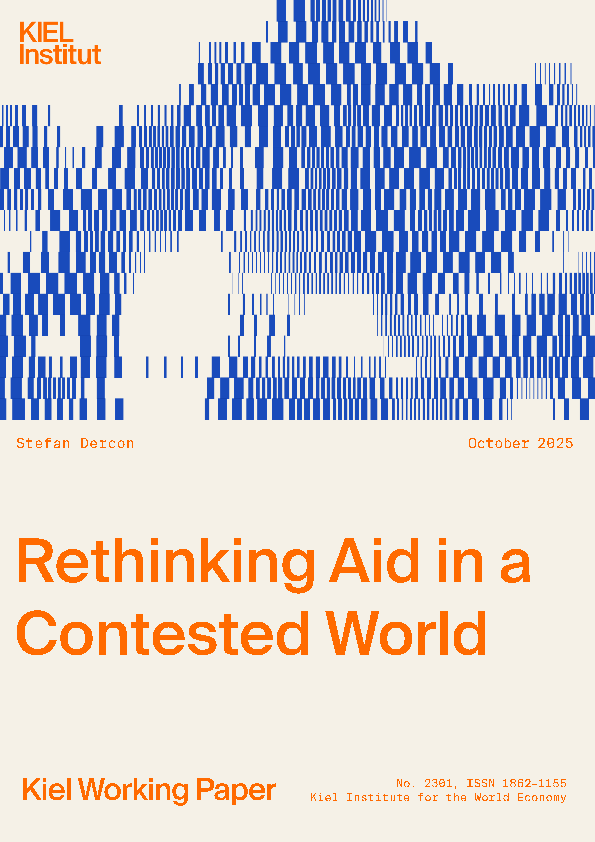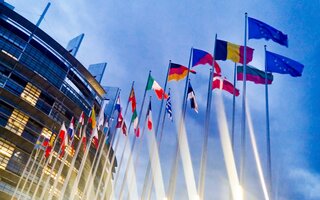Authors
Publication Date
JEL Classification
Key Words
Related Topics
Political Economy
Africa
Americas
Asia
Europe
Emerging Markets & Developing Countries
Globalization
International Finance
Sustainable Development
Development aid faces a crisis of budgets, legitimacy, and political alignment. Framed in recent decades as technocratic and benevolent, aid has always been political, shaped by donor and recipient incentives. Its post–Cold War expansion reflected a permissive era of unipolarity and globalization, when Western foreign policy, business, and security establishments provided broad support. That equilibrium has now collapsed. Multipolar rivalry, protectionism, and fragmented domestic coalitions have left aid vulnerable, shallowly supported, and increasingly driven by narrow donor interests. The paper calls for recognition of the need for a globalization 2.0 that enables poorer countries to grow, warning that without such a framework, remaining aid will become more fragmented and ineffective. It also cautions against a euphemistic reliance on “mutual interest,” as evidence of genuine donor–recipient benefits is limited; trade facilitation and post-conflict stabilization are rare exceptions. Finally, the paper advances four propositions: aid must be selective, avoid entrenching dependency, balance short-term results with long-term system building, and support reformers willing to challenge the status quo. Only by acknowledging its political nature and aligning incentives within a reconfigured global order can aid remain relevant to development.






